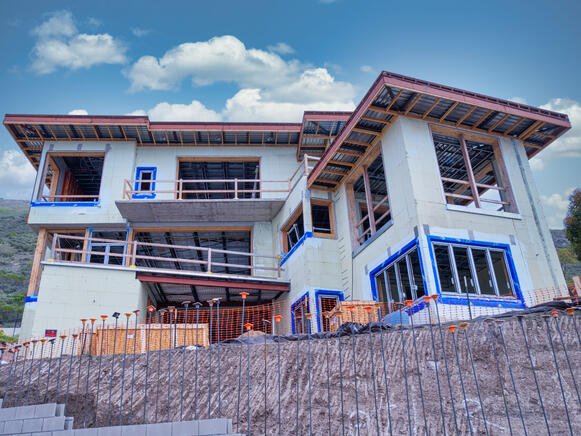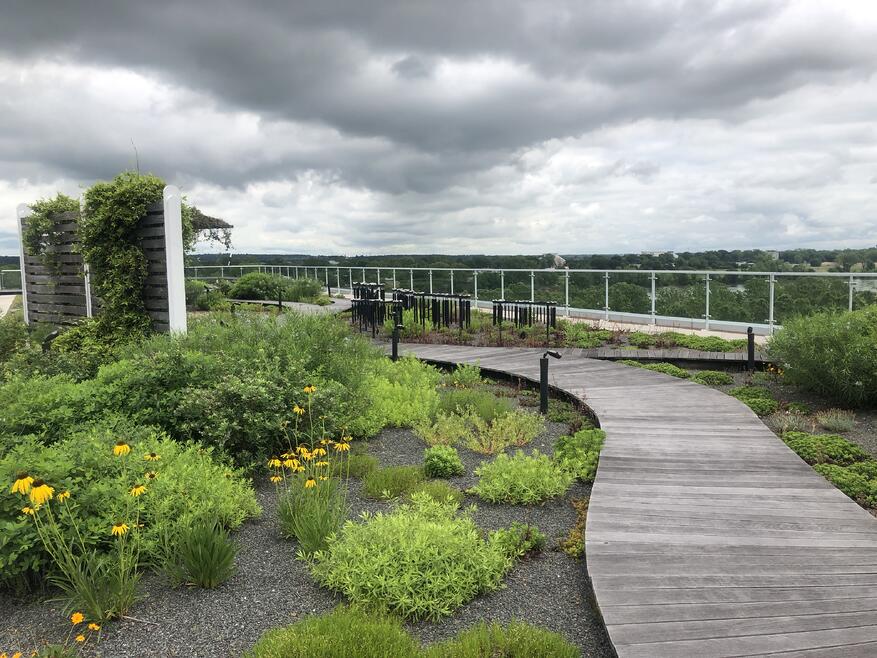
- Products
- Why Nudura
- Nudura Project Applications
- Training Academy
- Resources
- Company
Posted by Cameron Ware
Sustainable construction is increasingly popular as consumers and companies prioritize minimizing the environmental impacts of their buildings. More than simply adding energy-efficient appliances as an afterthought, green design now starts at the very beginning during the architectural planning phase.
Here, we break down the most inspiring green trends in building materials, construction, and processes.
Retrofitting Mania
More urban centers lack “missing middle” housing supply that can reduce sprawl and protect green spaces. To work around this shortage, homeowners and planners are finding creative solutions to make the most of existing neighborhoods without drastically altering their character and charm.
Some are building laneway homes, while others are retrofitting older homes to meet evolving needs, including improved energy efficiency. These century homes are being upgraded with wind turbines, solar panels, and cleaner HVAC systems, thereby reducing their overall carbon footprint. Larger buildings are even being retrofitted with continuous insulation on the exterior façade, enabling new aesthetics and superior energy-savings.
Biotech Living Buildings
While it may seem like something out of a futuristic science fiction film, buildings that grow, live, breathe, and even reproduce are now possible and can play a valuable role in easing the climate crisis.
For example, researchers are developing microbial fuel cells that can take domestic waste and generate small amounts of power, which can then be integrated into bricks. Another promising idea is bio-receptive surfaces, which promote the growth of good bacteria and can be used for kitchen counters to boost people’s immune systems.
 Eco-Friendly Materials
Eco-Friendly Materials
From solar panels to bamboo to formaldehyde-free kitchens, it’s all about consciously selecting materials and products that minimize waste, conserve energy, and create a healthier indoor environment.
One innovative material that architects and end-users alike love is insulated concrete forms, or ICFs. Offering superior energy efficiency, consistency in performance, and lower utility costs than wood framing, ICFs are a responsible choice for an eco-friendly home or net-zero building. For maximum design flexibility, most ICFs can be cut to any shape or radius to create unique custom structures.
Water Conservation Measures
With climate change affecting global water supplies while increasing temperatures and droughts, it has never been more important to reduce water consumption. Certification programs, such as LEED v4, often include water efficiency strategies as a requirement.
One way engineers are incorporating water conservation into their designs is by adding water-recovery and rainwater-catchment systems to their structures. Meanwhile, architects are replacing asphalt shingles with beautiful green roofs. Made up of diverse plants, green roofs have longer lifespans and can absorb storm water that would otherwise end up in sewers and require treatment.
Even adopting just one of these green building trends can have a positive impact on the environment. Learn more about the benefits of designing with ICFs for architects and engineers here

CONTACT US
We’re committed to supporting homeowners and design professionals who are interested in or use our products. We’re always happy to help and provide more information.




